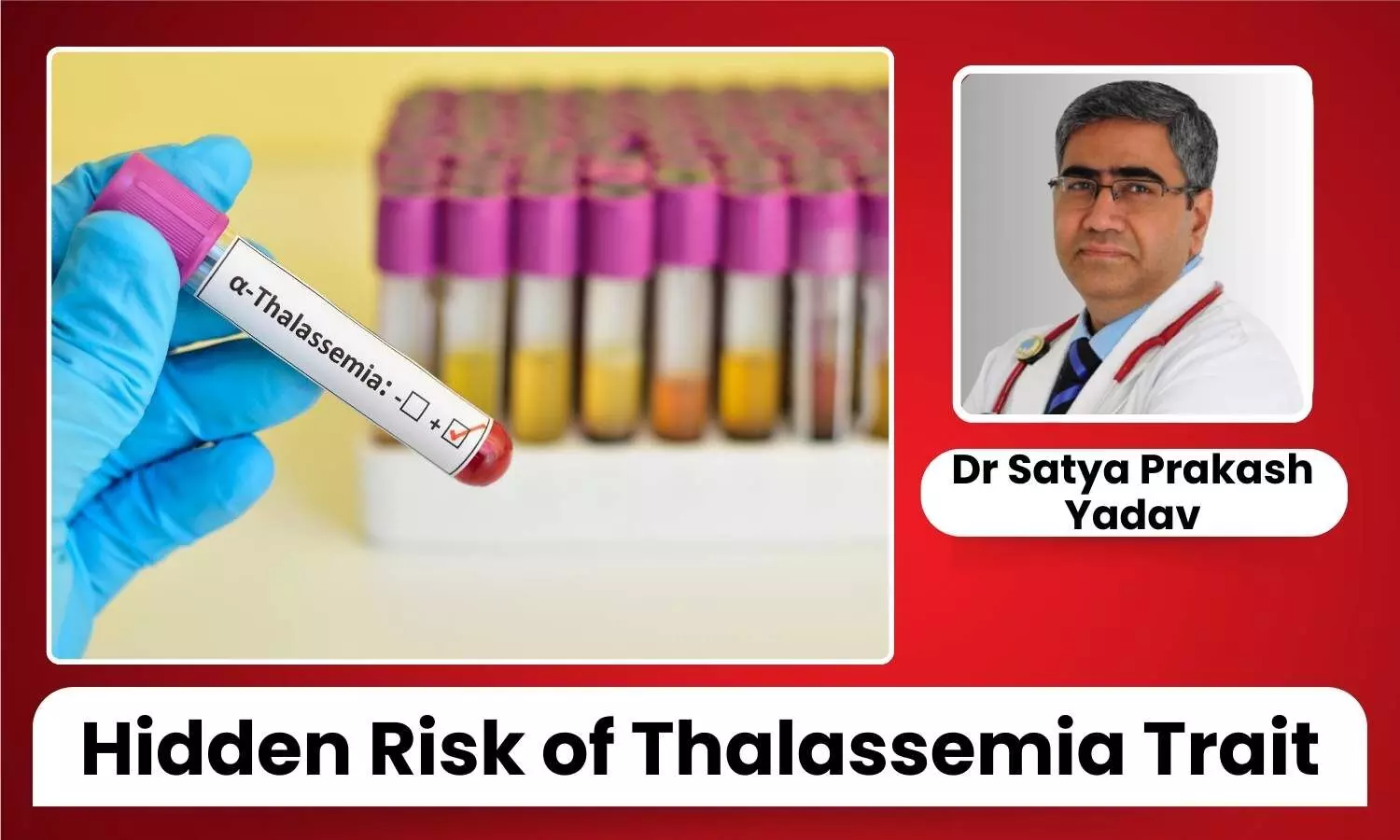World Thalassemia Day 2025: Hidden Risk of Thalassemia Trait - Dr Satya Prakash Yadav

Thalassemia is a genetic blood disorder that affects the production of hemoglobin, the protein in red blood cells responsible for carrying oxygen. While many are familiar with thalassemia major, a severe form requiring lifelong medical intervention, a far greater number are "silent carriers" of the thalassemia trait.
These individuals are generally healthy and unaware of their carrier status, yet they unknowingly harbour the potential to pass the gene onto their children, leading to serious health consequences.
Understanding Thalassemia Trait and its Implications
The thalassemia trait, also known as thalassemia minor, occurs when a person inherits one normal gene and one thalassemia gene. Because the normal gene compensates for the defective one, carriers typically experience no symptoms or only mild anaemia.
This lack of noticeable symptoms is what makes them "silent carriers." They live normal lives, often unaware of the genetic time bomb they carry.
The real risk arises when two thalassemia carriers have children. With each pregnancy, there's a chance that the child will inherit two thalassemia genes, resulting in thalassemia major.
This severe form of the disease can cause life-threatening anaemia, requiring regular blood transfusions and potentially bone marrow transplantation. Children with thalassemia major often face a shortened lifespan and significant health challenges.
Path to Prevention: Awareness, Screening, and Informed Choices
The key to mitigating the risk lies in awareness and screening. Pre-marital or pre-conception screening is crucial, especially for individuals with a family history of thalassemia or those belonging to high-risk ethnic groups.
A simple blood test can determine if someone carries the thalassemia trait. If both partners are carriers, genetic counselling is essential to understand the risks and explore options like prenatal diagnosis.
Prenatal diagnosis allows couples to determine if their fetus has thalassemia major. This information empowers them to make informed decisions about their pregnancy, including the option of terminating the pregnancy to avoid the suffering associated with the severe disease.
While the thalassemia trait itself poses no direct threat to the carrier's health, the potential impact on future generations is significant.
By raising awareness, promoting screening, and providing genetic counselling, we can empower individuals to make informed choices and reduce the incidence of thalassemia major, ultimately improving the health and well-being of future generations.
Early detection and informed decision-making are the most powerful tools in combating this hidden risk.


